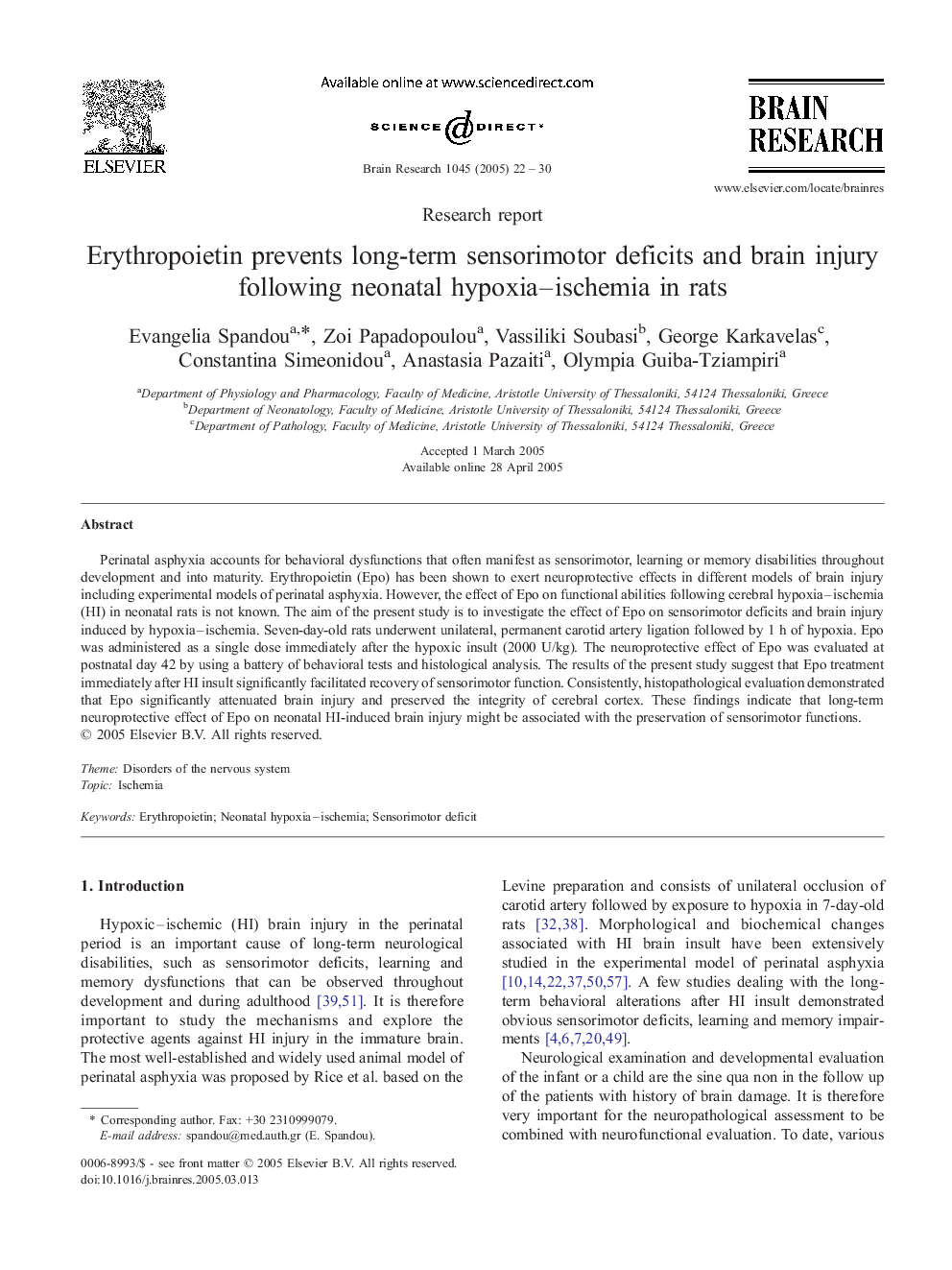| Article ID | Journal | Published Year | Pages | File Type |
|---|---|---|---|---|
| 9416279 | Brain Research | 2005 | 9 Pages |
Abstract
Perinatal asphyxia accounts for behavioral dysfunctions that often manifest as sensorimotor, learning or memory disabilities throughout development and into maturity. Erythropoietin (Epo) has been shown to exert neuroprotective effects in different models of brain injury including experimental models of perinatal asphyxia. However, the effect of Epo on functional abilities following cerebral hypoxia-ischemia (HI) in neonatal rats is not known. The aim of the present study is to investigate the effect of Epo on sensorimotor deficits and brain injury induced by hypoxia-ischemia. Seven-day-old rats underwent unilateral, permanent carotid artery ligation followed by 1 h of hypoxia. Epo was administered as a single dose immediately after the hypoxic insult (2000 U/kg). The neuroprotective effect of Epo was evaluated at postnatal day 42 by using a battery of behavioral tests and histological analysis. The results of the present study suggest that Epo treatment immediately after HI insult significantly facilitated recovery of sensorimotor function. Consistently, histopathological evaluation demonstrated that Epo significantly attenuated brain injury and preserved the integrity of cerebral cortex. These findings indicate that long-term neuroprotective effect of Epo on neonatal HI-induced brain injury might be associated with the preservation of sensorimotor functions.
Keywords
Related Topics
Life Sciences
Neuroscience
Neuroscience (General)
Authors
Evangelia Spandou, Zoi Papadopoulou, Vassiliki Soubasi, George Karkavelas, Constantina Simeonidou, Anastasia Pazaiti, Olympia Guiba-Tziampiri,
